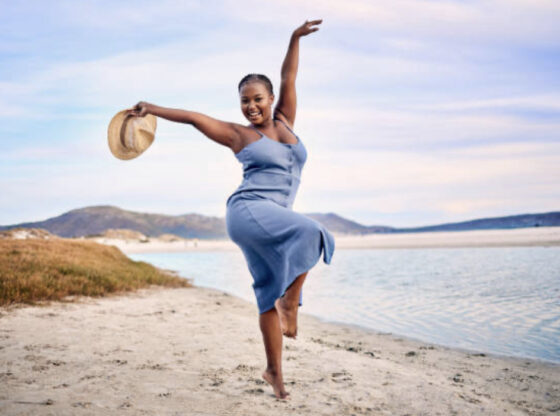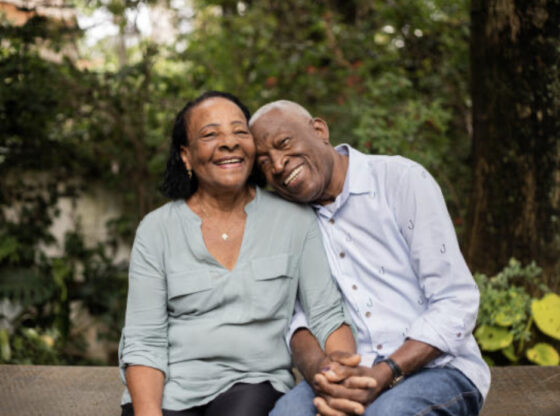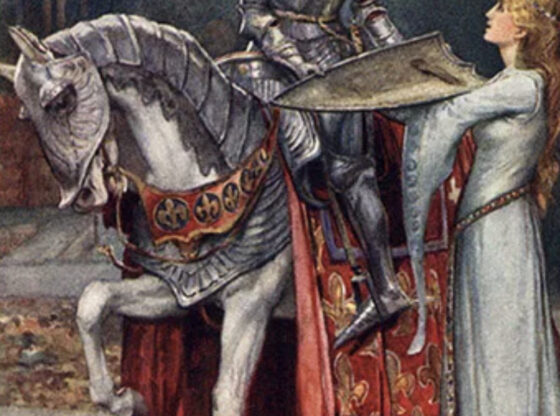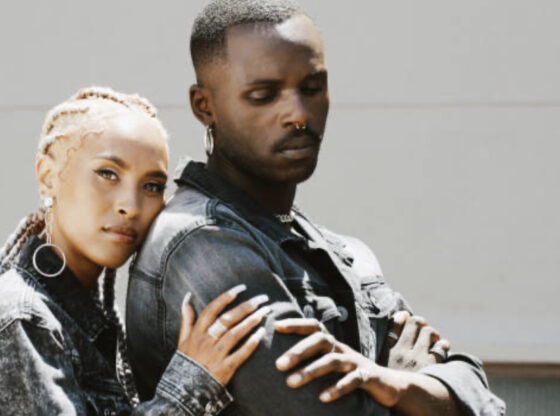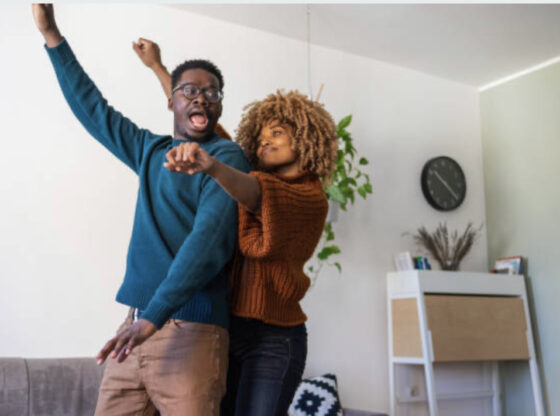It’s a sad thing that modern music, particularly rap music, is filled with stupid messages that degrade Black women, Black people, and Black culture.
It’s even sadder that some women think that the stupid rap music and the stupid rappers represent all or even most Black men.
Those who imagine that rap music represents all or most Black men are stupid themselves to imagine that all or even most Black men dislike or even hate Black women.
Some of those who hold such stupid thoughts imagine that the world would be better without men.
Even some former rappers think this way.
Question posed to Queen Latifah: “What would the world be like without men?” Her answer: “A bunch of fat, happy women, and no crime.”
They say it’s in the music I love and the music I used to love.
I suppose it’s easy to find if you merely look at the lyrics of some of the best and brightest artists. But you have to ignore who is making the music, who is dancing to it and who is buying it.
We should be evolving, they say. After all, Queen Latifah admonished men for calling any woman a bitch or a ‘ho years ago.
But still, the lyrics blare through speakers all across the land, giving too many women the impression that rap music, and, accordingly, Black men see them all as bitches and hoes.
As a former rap music advocate, it hurts, but, sadly, the accusations pointed at the rappers are largely true. The problem is that those rappers are opportunistic morons who hardly represent any great portion of Black men. Yet, too many Black women think that these fools are representative of all Black men in reality.
They were exposed early on to the lyrics of artists from NWA to Snoop and from Too Short to Ludacris, who rhyme quite nicely over bangin’ beats, but don’t have very many good things to say about women.
Mos Def and Common can’t rhyme to the rescue fast enough to counteract all the negative content being directed at young women.
Women are experiencing more at an earlier age, and with the help of modern media, particularly the music, they are becoming jaded earlier.
It doesn’t help that those images in the media—of gold-digging, sexually detached women portrayed as “independent”–have created a warped concept of relationships that causes a great deal of confusion and contradiction.
But it’s not just the male rappers that are perpetuating negative gender images.
Female rappers rhyme about obtaining cash and gifts for sexual favors and tricking men the way they have seen men trick women.
It hurts me deeply because I know too many females who try to live that lie out in real life, believing it makes them free and independent.
It hurts also that too many brothers fail to show their softer side to the sisters who try to love them, and in the pain and anguish bestowed upon them by a world where everyone seems to hate them (including themselves), they simply shove that pain onto the closest ones to them–the women who love them.
Sadly, many Black women are harboring their fair share of pain as well yet blaming Black men for that pain and pretending that they are without blame.
I could talk about the legacy of pain and self-devaluation passed on to us by centuries of psychological abuse, or the deterioration of the Black community fabric, or the lack of mentoring or poor parenting skills.
But there’s no real justification. Instead of blame, we should find resolution.
And yet, there’s another side.
I use an equivocation of the Black experience in America. I find it hard to solely attack “the white man” for all of our ills, when we have too many Black faces demeaning our images willingly for pay.
The same is true for women. They should find conflict in solely blaming and attacking men for their negative encounters, when there are too many sisters demeaning their images willingly for pay.
And even in the case of R. Kelly, some Black women are claiming that Black men just don’t protect them. But in order for that to be true or even valid, we would have to ignore the fact that it was Sparkle who served up her niece to the R&B star. And there are other females who were complicit. We would also have to ignore the fact that many Black women are still buying his music, still dancing to his music, still blasting his music in their cars and just before he stopped performing, were still clamoring to get into his shows.
I’ll take the front of the line when sisters protest against video hoes, and I’ll teach the first class at the charm school we create for the young teenage princesses who think that just because the body is young and nubile, it must be pushed up, pressed out and packaged to be shown to the world.
It hurts me when I hear sisters talk about how there aren’t any good men out there. Some of them are simply choosing bad men, because the music has made “thugs” popular. It has confused both sides.
As Black consumers, we embraced the negativity with open arms, but there’s a sad reality that we tend to overlook when it comes to rap music. The music belonged to us and was made by us for us until the turn of the decade of the 1990’s, when more young white teens began to buy it.
Those young white teens didn’t care if the music disrespected Black women, or women in general. They only cared if it was loud, perceived as cool amongst their new Black friends, and repulsive to their parents.
The stupid rappers who make the negative music largely have no real concern for anything except making cash, displaying the intrinsic attributes of a sellout. They purposely pander to the sensationalist appetites of the music industry.
However, as much as I detest the negative content in the music I love, I know that the rappers have a right to make it, just as we all have the right to our conversations with each other in public.
The same way I cringe when I hear young African Americans call each other “nigger,” is the same way I cringe when I hear sisters call each other “bitch.”
I’d like to see more parents, big brothers and sisters dig in and work with little boys to teach them how to honor and respect themselves and our sisters. I’d like to see the same parents, aunts and uncles dig in and work with little girls to teach them to honor and respect themselves and our brothers.
Colored girls who believe that the rainbow has long been enough and have learned to honor and respect themselves would find encouragement in witnessing Common rhyme about how he used to love Hip Hop, because he found it difficult to once the fake-gangsta emcees took over. They would find love in Hip Hop spirituals like “Retrospect for Life,” in which Common lets sisters know that brothers suffer too, when an unborn child is sacrificed for the “freedom” of the unmarried parents. They would find it in the raw emotions he gives up in songs like “The Light” and “I Want You.”
And even if these shining musical examples were not enough in a world seemingly filled with hatred for brown girls, they could realize that the brothers who rhyme about bitches and hoes simply are not speaking about them anyway, and feel sorry for the sisters who really are depicted in the songs, as well as the boys who know no better.
This is the best answer I can come with.
Is it the right answer?
I wish I knew.
What I do know is that the focus should be on being positive and highlighting the goodness found in real people, even when the music fails.
I love Black women.
I used to love Rap music.
I wish we were smart enough to love each other beyond the music.

